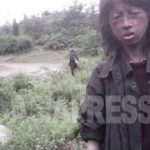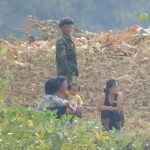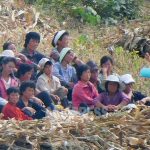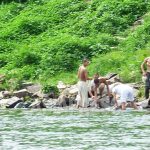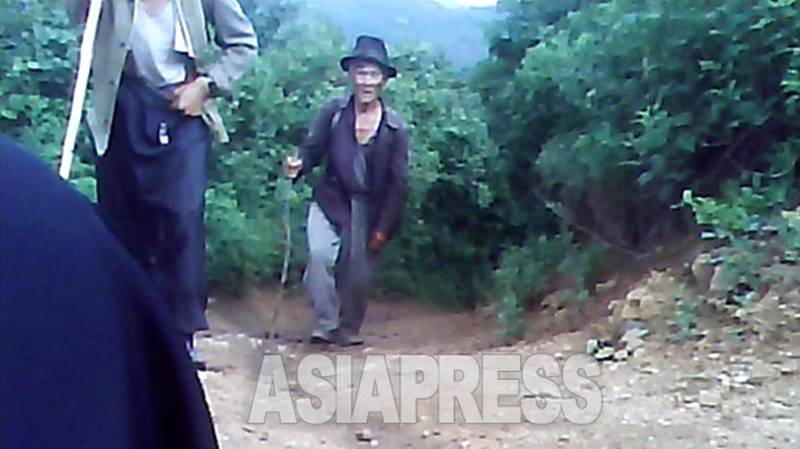
North Korean authorities have launched a major crackdown on people who live in secluded areas in the mountains and cultivate fields to survive, a reporting partner in the northern part of the country told ASIAPRESS in early April. They are using very coercive tactics, including mobilizing enforcement personnel to destroy temporary shelters people have built in the mountains. We look into the background of why the authorities are so obsessed with cracking down on slash-and-burn farmers, the lowest class in North Korea. (JEON Sung-jun / KANG Ji-won)
◆ Following the COVID outbreak, an increasing number of slash-and-burn farmers are from the cities
Slash-and-burn farmers refers to farmers who set fire to mountains to clear and cultivate fields. The term for slash-and-burn farmers in Korean, “hwajeonmin,” also means “fugitive” in the North Korean context. This is because they illegally left their homes and went into hiding in the mountains.
Slash-and-burn farmers began to appear in North Korea in the mid-1990s, in response to the social turmoil and hunger that swept the country. They turned their backs on civilization and moved deep into the mountains, away from the reach of state power, where they built huts and began farming.
While the huts may sound romantic to some, they are very primitive living arrangements with minimal protection from wind and rain. Living in the mountains without a proper house, electricity, running water, or neighbors is a harsh existence that is hard for most modern people to imagine.
In effect, slash-and-burn farmers are sort of like domestic refugees. Initially, they were mainly from rural areas where they were familiar with the mountains and used to farming, but recently, there have been many slash-and-burn farmers originally from urban areas.
◆ Up to 10 people from each neighborhood watch unit are going into the mountains
According to information sent by a reporting partner living in a northern city in early April, the number of people going into the mountains has increased, even in urban areas, as North Korea has sealed its borders and tightened domestic population controls since the COVID pandemic broke out in January 2020.
"Even in my neighborhood, a lot of people went into the mountains last year, and I heard that there are usually five to as many as 10 people going to the mountains from each neighborhood watch unit."
※ Neighborhood watch units are North Korea’s lowest administrative units and are typically made up of 60-80 people.
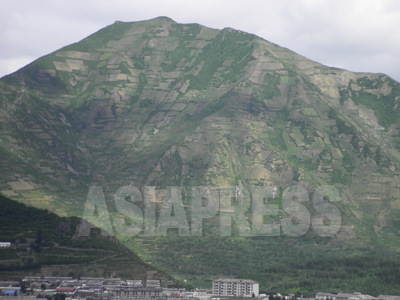
◆ Government uses neighborhood watch units to intensify monitoring of slash-and-burn farmers, destroying huts and even forcing people to leave mountainous areas
North Korea’s government has been cracking down on slash-and-burn farmers since they began to appear, but this year, the authorities have intensified their efforts to eliminate these farmers. In addition to crackdowns, the authorities have recently been monitoring their activities through neighborhood watch units, according to the reporting partner.
"The authorities don't know when and where they go (into the mountains), so the government is informing people through neighborhood watch units not to go into the mountains under the pretext of preventing forest fires or preventing damage to forests.”
She added: "The forestry administration office or forest monitoring team tells people not to start forest fires, and they go around looking for fire pits, tearing them down and chasing slash-and-burn farmers away," the reporting partner said, adding that one person who went up to the mountain had to come back down because his hut was destroyed.
※ Forestry Administration Office: A government department that manages the nation’s forests to ensure they are used in an efficient manner.
※ Forest Monitoring Team: A government agency that monitors and cracks down on people who illegally farm in forested areas or damage forests.
◆ The government’s real goal is to control its people
"In winter, it's too cold to live in the mountains, so the farmers come down before going back up in the spring. However, the government turns a blind eye to the elderly and only crackdown on young people. The purpose is to prevent (young people) from skipping out on organizational life, disappearing, defecting, or otherwise getting into trouble."
The government’s measures to control the population, which also threaten the livelihoods of slash-and-burn farmers, have led to growing discontent among North Korean people.
"People who are trying to live somehow (in the mountains) are complaining that they don't know what they did wrong to deserve such a hard life."
The Kim Jong-un regime's crackdowns on slash-and-burn farmers fits into the larger context of its ongoing efforts following the start of the COVID pandemic to exert greater control over society. More specifically, the government aims to exert control over land and people that have been outside of the state's control.
As the crackdowns and controls intensify, the unhappiness of slash-and-burn farmers as they prepare for the spring planting is only growing.
※ ASIAPRESS communicates with its reporting partners through Chinese cell phones smuggled into North Korea.
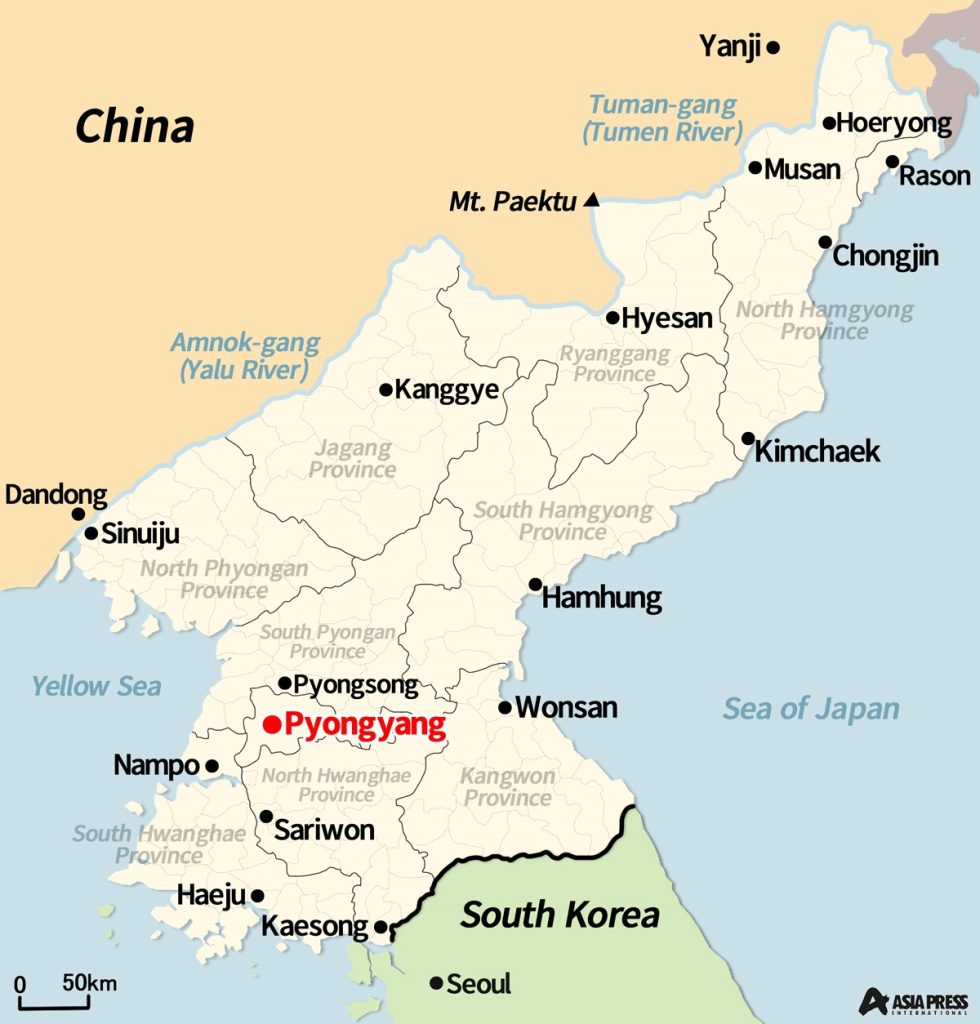
- <Inside N. Korea> Government confiscates private plots of farmland and forces people to return farming
- <Investigation>Why aren’t North Korea’s women having babies anymore? (1) The fertility rate is already severely low…It’s rare to see anyone carrying babies around
- <Investigation Inside N. Korea> A shocking situation...How are the neglected elderly faring? (1) Poverty-stricken elderly people live off begging and wander the streets
- <Inside N. Korea> Implementation of the large-scale restructuring of trading companies (1) Called “anti-socialist hotbeds,” government forces ‘bases’ of trading companies to close down and consolidate
- <Inside N. Korea> Preparation for construction mobilizations for Kim Jong-un’s “20x10 policy” are complete, but there’s already unrest and complaints among workers over supplies of food
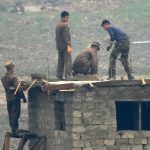
![[Video Report] Parade Drill by Female Students](https://www.asiapress.org/rimjin-gang/wp-content/uploads/2018/07/20130730_yeolbyeongsik_03-150x150.jpg)
